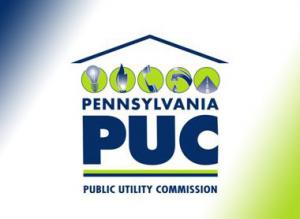Pennsylvania Green Lights Three Utility Proposals

Continuing the push to strengthen and upgrade electric, natural gas, and water/wastewater facilities within the state, the Pennsylvania Public Utility Commission has endorsed new long-term infrastructure improvement plans (LTIIPs) for two electric utilities and one sewer utility.
The commission noted that pursuant to 2012 legislation, regulated energy and water utilities in Pennsylvania were allowed to petition for a distribution system improvement charge (DSIC) as a means of funding programs designed to accelerate the replacement of aging utility infrastructure across the state. The commission underscored the fact that LTIIPs and DSICs are available only for those endeavors that involve an accelerated pace of work.
The commission reported that since the state law went into effect, it has approved 25 utility-sponsored LTIIPs, which together represent an investment of $2.3 billion in system replacements and upgrades through 2016. The commission added that by 2023, such investments will have grown close to $8 billion. Such work not only advances the public health and safety by eliminating or reducing leaks or losses in transmission, but also helps ensure reliability of service and cost-effectiveness, the commission said.
In listing the standards with which a utility must comply to have a proposed LTIIP approved, the commission stated that first and foremost, the company must show that the requested program will either demonstrably accelerate or maintain an already accelerated schedule for repairing, upgrading, or replacing certain facilities. Second, the commission said, the utility must show that it is capable of adhering to the plan. In addition, the commission related that the cost calculations presented by the utility must be reasonable and adequate for covering the scope of work proposed. The projects likewise must appear cost-effective and properly aimed at assuring safe, efficient, and reliable service.
The plans also must meet all state regulations governing the work involved. In the case of the three LTIIPs before it, the commission found that the three utilities had met all of the criteria. It pointed out that for two of the applicants – PPL Electric Utilities Corporation and Aqua Pennsylvania Wastewater – the proffered LTIIPs were the second for each. However, the LTIIP submitted by the third utility, UGI Utilities, Inc.-Electric Division, was only its first.
In looking at PPL Electric’s second LTIIP, the commission observed that during the course of its initial plan, which covered the five-year period of 2013 to 2017, the utility had underspent its proposed budget by about 6% overall. Despite the underspending, though, the company had shown marked improvement in its performance year over year during that time. That led the commission to conclude that PPL had largely complied with its program goals and expectations, some underspending notwithstanding. In the commission’s view, the most recent LTIIP presented by PPL built on the success of the first one and was reasonably designed to maintain momentum in replacing and/or reinforcing utility poles, repairing failed underground cables, installing new reclosers and capacitors, and adding automated equipment wherever possible.
All such work the commission deemed to be appropriately focused on cost-effective measures that will enhance system and service reliability on an accelerated basis. Re PPL Electric Utilities Corp., Docket No. P-2017-2622393, Dec. 21, 2017 (Pa.P.U.C.).
In examining the second LTIIP prepared by the wastewater company, the commission found that in contrast to PPL’s underspending, Aqua had exceeded its projected budget, by slightly more than 10%. At the same time, though, the commission ruled that the additional expenditures were not so great as to render the utility’s administration of its LTIIP improper or unreasonable. The commission said it agreed with the company that certain cost overruns, especially in the latter years of a multiyear program, are not unheard of. Moreover, the commission accepted Aqua’s argument that circumstances had forced it to reschedule to earlier years certain work it had expected to perform in later years. The commission held that, similar to PPL, the sewer utility had learned from its first LTIIP and had modified both its scope of work and budgets accordingly.
Indeed, the commission commended the utility for its accomplishments under the initial LTIIP, including closed circuit television inspections of almost 60 miles of sewer main, total replacements of another eight miles of main, repairs to 500 manholes, and improvements and upgrades to more than 100 pumping stations. In authorizing Aqua to begin a new five-year improvement plan, covering 2018 to 2022, the commission stated that its review of the company’s second LTIIP indicated that the utility was continuing to prioritize projects appropriately and in a manner that will foster cost-effectiveness. Re Aqua Pennsylvania Wastewater Inc., Docket No. P-2017-2622818, Dec. 21, 2017 (Pa.P.U.C.).
Finally, upon consideration of the first-ever LTIIP tendered by UGI, the commission drew attention to the fact that the company’s service reliability had been trending downward over the last five years, indicating a need for major system hardening and replacements. To that end, the commission found that the company’s LTIIP was premised primarily on wood pole replacements, prioritized by age, along with widespread transformer and distribution circuit breaker replacements, similarly prioritized by age.
Voicing concern that UGI’s records showed that it had around 14,000 wood poles that are more than 50 years old and that significant segments of its secondary/service cables are deteriorated and more than 30 years old, the commission concurred with the company’s assessment that such facilities should be the focus of its LTIIP going forward. It said that while the scope of work in the five-year plan may be ambitious, it obviously was necessary. The commission thus concluded that the accelerated pace of work set forth in the LTIIP, along with the associated budget, appeared reasonable overall. Re UGI Utilities Inc.-Electric Division, Docket No. P-2017-2619834, Dec. 21, 2017 (Pa.P.U.C.).



